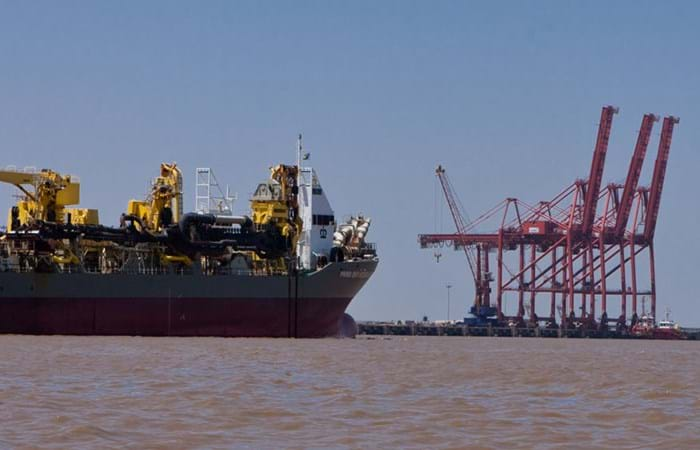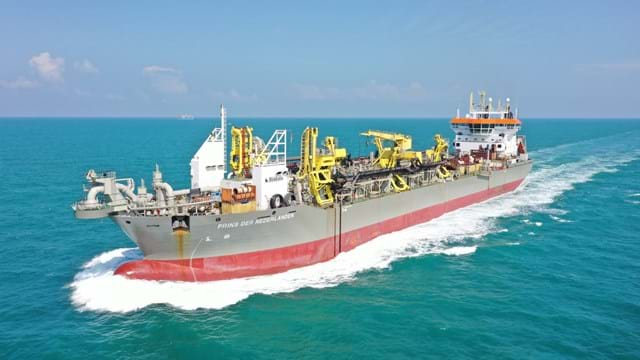As a result of the booming container market in recent years, GPPL and APM Terminals introduced a long term investment plan to further develop the port’s facilities. Phase 2 of the expansion program included the reclamation of a new storage (container stacking) area and the extension of the port’s capacity by deepening the approach, channels and berths, allowing larger (container) vessels to enter the port. Zinkcon Marine Singapore, a subsidiary of Boskalis International B.V., won the contract for the dredging and reclamation works for Phase 2. In the beginning of 2009, however, the client re-evaluated the investment against the background of the dramatic effects of the economic crisis, which seriously affected the global container market. GPPL, APMT and ZMS agreed to optimize the project in such a way that all parties would benefit.
Although Pipavav is a sheltered port, the working season for dredging and reclamation activities is limited to the period October - May. During the monsoon season, numerous gails, heavy rain periods, strong currents and occasional swell hamper the process of dredging. Demobilisation by towing can be particularly hazardous. This situation called for a tight time frame. After the contract was signed in October 2008, mobilization activities started in November / December 2008. Consequently, the actual dredging work commenced in early January 2009, when the Cutter Suction Dredger Cyrus II was employed for the dredging of a volume of 1,900,000 m3. The dredged material, mainly consisting of sandstone and a mixture of sand and clay, was pumped ashore into the reclamation area. In May 2009, the Trailing Suction Hopper Dredger Prins der Nederlanden dredged the outer channel. A total volume of 400,000 m3 was dumped offshore. The project was completed by the end of May, well before the start of the monsoon.

